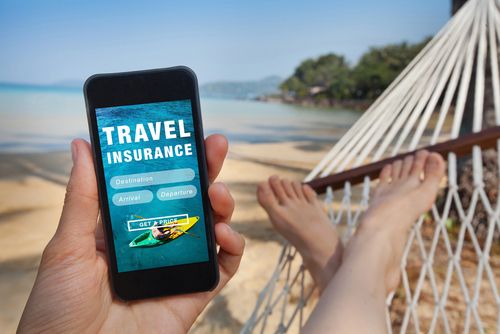 A honeymoon is a great chance to get away from the world, spend time with each other, and recharge before returning to the daily grind. At the same time, many things can go wrong. COVID-19 is currently making headlines as it impacts cruise ships, airline travel, and honeymooning couples all over the world. But whether it’s a viral outbreak, a targeted scam, or something simple like losing your luggage, unexpected events can ruin your otherwise blissful getaway. Traveler insurance promises sound protection, but is it worth the price? Read on to find out more.
A honeymoon is a great chance to get away from the world, spend time with each other, and recharge before returning to the daily grind. At the same time, many things can go wrong. COVID-19 is currently making headlines as it impacts cruise ships, airline travel, and honeymooning couples all over the world. But whether it’s a viral outbreak, a targeted scam, or something simple like losing your luggage, unexpected events can ruin your otherwise blissful getaway. Traveler insurance promises sound protection, but is it worth the price? Read on to find out more.
What Is Travel Insurance?
NerdWallet’s Barbara Marquand describes travel insurance as a “safety net” for travel-related incidents. Many types of travel insurance policies are available, typically covering major financial losses such as lost or stolen luggage, medical emergencies, legal assistance, accidental death, and cancellation for nonrefundable trips in certain cases.
If you’re just taking a weekend road trip, you probably don’t need a policy. However, it can offer protection for pricier getaways. The Knot mentions expensive nonrefundable trips such as cruises or package deals, which are popular honeymoon options. Keep in mind that existing insurance may offer similar or better protections for some losses: for instance, life insurance for accidental death or auto insurance for rental cars.
Understanding Your Coverage
Marquand explains that travel insurance is generally sold as a comprehensive plan that bundles many coverages into one policy. However, you may find some insurers selling individual types of coverage separately. It’s important to thoroughly read any policy information before your purchase, but most coverage falls into a few common categories:
- Trip cancellation, interruption, and delay coverage pays if the cruise line or tour operator for your getaway goes out of business or for illness, death, extreme weather, or natural disasters.
- Baggage and personal effects coverage reimburses you for lost or stolen luggage, jewelry, and other personal belongings.
- Accidental death and dismemberment pays your beneficiary if you die or a lump sum to you if you lose a limb, eyesight, hearing, or speech during a trip.
- Emergency medical assistance covers unexpected illness as well as hospital transportation and stays.
- Medical repatriation covers your journey home if an illness or injury forces you to leave.
- Major medical coverage handles some basic medical expenses while you’re away from home.
Some companies also offer rental car insurance for lost, stolen, or damaged rental vehicles. Most also provide 24-hour assistance to help travelers with missed flights, tracking down missing baggage, or legal and medical resources. The Knot also mentions terrorism clauses, which may reimburse you for cancellations if an incident happens at your destination.
Policy Exclusions and Limits
While travel insurance can be rather comprehensive, there are a few things that it doesn’t cover. The most recent example is the coronavirus outbreak: Vox’s Terry Nguyen cautions that it may not be included in many policies. Insurers now classify COVID-19 as a “foreseen event,” so travel insurance may not pay for cancellations if you purchased your policy after the epidemic became global. The only exception is “cancel for any reason” coverage, which can cost up to 40% more than regular policies.
Meanwhile, check your policy for other exclusions and limitations. Terror incidents may not be covered for destinations with a U.S. State Department warning. On a more mundane note, don’t forget about reimbursement caps for personal effects, medical treatment, and rental car coverage. Other exclusions may apply, such as pre-existing medical conditions and injuries from participation in extreme sports.
Minimizing Your Risks
Disasters, illness, and cancellations are probably the last things on your mind when it comes to your honeymoon. Life isn’t risk-free, but you can take steps to prepare yourselves and minimize negative impacts. Many honeymooning couples can benefit from travel insurance policies. Shop smart, do your research, and understand your needs before you buy.
Add Your Comment